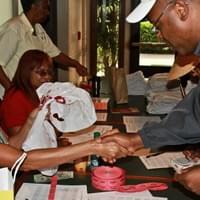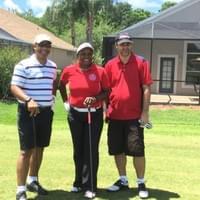

Sickle Cell Association of Hillsborough County
Sickle Cell Association of Hillsborough County
SCAHillsborough
SCAHillsborough
- ←→
Donate!
The form should appear below in less than 10 seconds. If it does not appear Click Here.
About SCAHillsborough

A small tagline
VISION
To break the sickle cycle and find a cure
MISSION
The mission of the Sickle Cell Association of Hillsborough County, Inc. is to help individuals with sickle cell conditions live lives that are, to the maximum extent possible, unhampered and uncompromised by their sickle cell conditions.
HISTORY
The Sickle Cell Association of Hillsborough County was established in 1976. For over 35 years, it has provided materials to educate persons with sickle cell concerning medical, sociological, and psychological implications of sickle cell disease and trait. Counseling is provided to individuals and families diagnosed through the Newborn Screening Program. Educational programs are conducted to community groups, health care providers, and public and private schools. The organization also provides medical and social services referrals to individuals and families affected by disease.
Our OUTREACH programs seek to do the following:
- Openness and empathy for sickle cell disease/trait patients and their families.
- Understanding the use of evidence-based strategies to prevent hospitalization and burdens on the system.
- Teaching best treatment practices to healthcare providers and educating patients and their families about ways to live with this chronic condition with no cure.
- Referrals to medical professionals for appropriate medical care, focused on improving outcomes.
- Empowering our community thru increased knowledge and awareness to contribute toward helping SCA find a cure
- Assisting patients with identifying resources and services to improve the quality of their lives.
- Counseling patients with disease/trait and their families.
- Health fairs which screen individuals and raise awareness about the condition.
Board Members
Our board is committed to educating Hillsborough County concerning Sickle Cell Anemia

Councilman Frank Reddick
President and CEO
Mr. Reddick is not only the President & CEO of the Sickle Cell Association of Hillsborough County, but also a Tampa City Councilman for District 5. He is a member and leader of host of boards throughout the country. He is a Paine College alumnus.

Patricia Dawson, Esquire
Board Chair
Attorney Patricia Dawson practices in the area of Criminal Defense, Family, and Personal Injury law. She has been actively involved in the Sickle Cell Association of Hillsborough County for over eight (8) years. She became and advocate after observing the painful impact it had on a local Tampa family.

Joan Holmes, PhD
Board Member
Dr. Joan Holmes is the Special Assistant to the President for Equity and Special Programs at Hillsborough Community College in Tampa, Florida. She formerly served 23 years at the University of South Florida as Assistant Dean of the Graduate School. She is a Ball State, GA State University, and NC A&T University Alumna. Read more...

Barbara Pittman, Esquire
Board Member
Attorney Pittman is a former Assistant State Attorney and specializes in the practice areas of Family Law, Personal Injury, Criminal Defense, Juvenile Law and Sports Law. She is a member of a host of Bar Associations throughout the state of Florida and is an alumna of Florida State University.

Tiffany Craig, Esquire
Board Member
Attorney Craig has been on the Sickle Cell Association of Hillsborough County Board since 2006. She has the sickle cell trait and is on a personal mission to raise funds for research and awareness about the disease. She owns a successful law practice and is a alumna of Florida State University and Texas Southern University.
Donna Douglas, Pharmacist
Board Member
Pharmacist Douglas joined the group to help educate the community through enhancement of fundraising for financial support to promote initiatives. Ms. Douglass is a pharmacist with Walmart and a member of the Gamma Theta Omega Chapter of
Alpha Kappa Alpha Sorority, Inc., immediate past 2 term President.

Jewel Hamilton, Agent
Board Member
Jewel Hamilton is an insurance agent employed by Humana Marketpoint Inc., operating out of their Tampa, FL office.
What is Sickle Cell Disease?
Add title here.
Sickle cell disease refers to a group of inherited red blood cell disorders. It is the most common genetic disease in the U.S. An estimated 70,000-80,000 Americans have sickle cell disease.
- Normal red blood cells are round like doughnuts, and they move through small blood tubes in the body to deliver oxygen.
- Sickle red blood cells become hard, sticky and shaped like sickles used to cut wheat.
- When these hard and pointed red cells go through the small blood tube, they clog the flow and break apart. This can cause pain, damage and a low blood count, or anemia.

What is sickle cell trait?
A person with the sickle cell trait does not have ( and will never have) sickle cell disease. However, the presence of the trait may impact his/her children ( see "How do you get sickle cell disease?"). A person with the trait carries one abnormal hemoglobin gene inherited from one parent ( S, E, C, etc.) and one normal hemoglobin gene from the other parent ( type A). Typically, sickle cell trait is the presence of hemoglobin AS.
How do you get sickle cell disease?
Sickle cell disease is not contagious; you cannot "catch" it. You inherit it from your parents. If, for example, one parent has normal hemoglobin ( type AA) and the second parent has abnormal hemoglobin ( type AS, or the sickle cell "trait"), there is a 50% chance that each child will have the sickle cell trait, but they will not have sickle cell disease ( type SS).
If, however, both parents have type AS hemoglobin (one normal and one abnormal), there is:
- a 25% chance that the child will have sickle cell disease,
- a 50% chance that the child will have sickle cell trait, and
- a 25% chance that the child will have neither the disease or trait.
These chances are the same for each child.
Add paragraph text here.

Are there different types of sickle cell disease?
The three most common forms of the disease in the United States are:
- Hemoglobin SS or sickle cell anemia
- Hemoglobin SC disease
- Hemoglobin sickle beta-thalassemia (a form of "Cooley's" anemia)
Each of these can cause very painful "crisis" episodes and in severe cases lead to stroke, heart attack and death.
For more information - Sickle Cell Disease Information Links:
Sickle Cell Disease Association of America - http://www.sicklecelldisease.org
National Heart Lung and Blood Institute - http://www.nhlbi.nih.gov/health/health-topics/topics/sca/
Sickle Cell Society - http://www.sicklecellsociety.org
The Children’s Hospital of Philadelphia - http://www.chop.edu/consumer/jsp/division/generic.jsp?id=81077
WEP Sickle Cell Disease - www.wepsicklecell.org/
Sickle Cell Disease - http://www.medicinenet.com/sickle_cell/article.htm
This article is only for information purposes and not meant to take the place of a physician's medical diagnosis or advice.
Signs and Symptoms of sickle cell anemia

Signs and symptoms of sickle cell anemia often don't appear until an infant is at least 4 months old and may include:
- Anemia. Sickle cells are fragile. They break apart easily and die, leaving you without a good supply of red blood cells. Red blood cells usually live for about 120 days before they die and need to be replaced. But sickle cells die after an average of less than 20 days. This results in a lasting shortage of red blood cells (anemia). Without enough red blood cells in circulation, your body can't get the oxygen it needs to feel energized. That's why anemia causes fatigue.
- Episodes of pain. Periodic episodes of pain, called crises, are a major symptom of sickle cell anemia. Pain develops when sickle-shaped red blood cells block blood flow through tiny blood vessels to your chest, abdomen and joints. Pain can also occur in your bones. The pain may vary in intensity and can last for a few hours to a few weeks. Some people experience only a few episodes of pain. Others experience a dozen or more crises a year. If a crisis is severe enough, you may need to be hospitalized.
- Hand-foot syndrome. Swollen hands and feet may be the first signs of sickle cell anemia in babies. The swelling is caused by sickle-shaped red blood cells blocking blood flow out of their hands and feet.
- Frequent infections. Sickle cells can damage your spleen, an organ that fights infection. This may make you more vulnerable to infections. Doctors commonly give infants and children with sickle cell anemia vaccinations and antibiotics to prevent potentially life-threatening infections, such as pneumonia.
- Delayed growth. Red blood cells provide your body with the oxygen and nutrients you need for growth. A shortage of healthy red blood cells can slow growth in infants and children and delay puberty in teenagers.
- Vision problems. Some people with sickle cell anemia experience vision problems. Tiny blood vessels that supply your eyes may become plugged with sickle cells. This can damage the retina — the portion of the eye that processes visual images.
When to see a doctor
Although sickle cell anemia is usually diagnosed in infancy, if you or your child develops any of the following problems, see your doctor right away or seek emergency medical care:
- Unexplained episodes of severe pain, such as pain in the abdomen, chest, bones or joints.
- Swelling in the hands or feet.
- Abdominal swelling, especially if the area is tender to touch.
- Fever. People with sickle cell anemia have an increased risk of infection, and fever can be the first sign of an infection.
- Pale skin or nail beds.
- Yellow tint to the skin or whites of the eyes.
- Any signs or symptoms of stroke. If you notice any one-sided paralysis or weakness in the face, arms or legs, confusion, trouble walking or talking, sudden vision problems or unexplained numbness, or a headache, call 911 or your local emergency number right away.
This article is only for information purposes and not meant to take the place of a physician's medical diagnosis or advice.
Sickle Cell Anemia TREATMENTS

Treatments and Drugs
Bone marrow transplant offers the only potential cure for sickle cell anemia. But finding a donor is difficult and the procedure has serious risks associated with it, including death.
As a result, treatment for sickle cell anemia is usually aimed at avoiding crises, relieving symptoms and preventing complications. If you have sickle cell anemia, you'll need to make regular visits to your doctor to check your red blood cell count and monitor your health. Treatments may include medications to reduce pain and prevent complications, blood transfusions and supplemental oxygen, as well as a bone marrow transplant.
Medications
Medications used to treat sickle cell anemia include:
- Antibiotics. Children with sickle cell anemia may begin taking the antibiotic penicillin when they're about 2 months of age and continue taking it until they're at least 5 years old. Doing so helps prevent infections, such as pneumonia, which can be life-threatening to an infant or child with sickle cell anemia. Antibiotics may also help adults with sickle cell anemia fight certain infections.
- Pain-relieving medications. To relieve pain during a sickle crisis, your doctor may advise over-the-counter pain relievers and application of heat to the affected area. You may also need stronger prescription pain medication.
Hydroxyurea (Droxia, Hydrea). When taken daily, hydroxyurea reduces the frequency of painful crises and may reduce the need for blood transfusions. Hydroxyurea seems to work by stimulating production of fetal hemoglobin — a type of hemoglobin found in newborns that helps prevent the formation of sickle cells. Hydroxyurea increases your risk of infections, and there is some concern that long-term use of this drug may cause tumors or leukemia in certain people. However, this hasn't yet been seen in studies of the drug.
Hydroxyurea was initially used just for adults with severe sickle cell anemia. Studies on children have shown that the drug may prevent some of the serious complications associated with sickle cell anemia. But the long-term effects of the drug on children are still unknown. Your doctor can help you determine if this drug may be beneficial for you or your child.
Assessing stroke risk
Using a special ultrasound machine (transcranial), doctors can learn which children have a higher risk of stroke. This test can be used on children as young as 2 years, and those who are found to have a high risk of stroke are then treated with regular blood transfusions.
Vaccinations to prevent infections
Childhood vaccinations are important for preventing disease in all children. But, these vaccinations are even more important for children with sickle cell anemia, because infections can be severe in children with sickle cell anemia. Your doctor will make sure your child receives all of the recommended childhood vaccinations. Vaccinations, such as the pneumococcal vaccine and the annual flu shot, are also important for adults with sickle cell anemia.
Blood transfusions
In a red blood cell transfusion, red blood cells are removed from a supply of donated blood. These donated cells are then given intravenously to a person with sickle cell anemia.
Blood transfusions increase the number of normal red blood cells in circulation, helping to relieve anemia. In children with sickle cell anemia at high risk of stroke, regular blood transfusions can decrease their risk of stroke.
Blood transfusions carry some risk. Blood contains iron. Regular blood transfusions cause an excess amount of iron to build up in your body. Because excess iron can damage your heart, liver and other organs, people who undergo regular transfusions may need treatment to reduce iron levels. Deferasirox (Exjade) is an oral medication that can reduce excess iron levels.
Supplemental oxygen
Breathing supplemental oxygen through a breathing mask adds oxygen to your blood and helps you breathe easier. It may be helpful if you have acute chest syndrome or a sickle cell crisis.
Stem cell transplant
A stem cell transplant, also called a bone marrow transplant, involves replacing bone marrow affected by sickle cell anemia with healthy bone marrow from a donor. Because of the risks associated with a stem cell transplant, the procedure is recommended only for people who have significant symptoms and problems from sickle cell anemia.
If a donor is found, the diseased bone marrow in the person with sickle cell anemia is first depleted with radiation or chemotherapy. Healthy stem cells from the donor are filtered from the blood. The healthy stem cells are injected intravenously into the bloodstream of the person with sickle cell anemia, where they migrate to the bone marrow cavities and begin generating new blood cells. The procedure requires a lengthy hospital stay. After the transplant, you'll receive drugs to help prevent rejection of the donated stem cells.
A stem cell transplant carries risks. There's a chance that your body may reject the transplant, leading to life-threatening complications. In addition, not everyone is a candidate for transplantation or can find a suitable donor.
Treating complications
Doctors treat most complications of sickle cell anemia as they occur. Treatment may include antibiotics, vitamins, blood transfusions, pain-relieving medicines, other medications and possibly surgery, such as to correct vision problems or to remove a damaged spleen.
Experimental treatments
Scientists are studying new treatments for sickle cell anemia, including:
- Gene therapy. Because sickle cell anemia is caused by a defective gene, researchers are exploring whether inserting a normal gene into the bone marrow of people with sickle cell anemia will result in the production of normal hemoglobin. Scientists are also exploring the possibility of turning off the defective gene while reactivating another gene responsible for the production of fetal hemoglobin — a type of hemoglobin found in newborns that prevents sickle cells from forming. Potential treatments using gene therapy are still a long way off, however. No human trials using genes specifically for sickle cell have yet been done.
- Nitric oxide. People with sickle cell anemia have low levels of nitric oxide in their blood. Nitric oxide is a gas that helps keep blood vessels open and reduces the stickiness of red blood cells. Treatment with nitric oxide may prevent sickle cells from clumping together. Studies on nitric oxide have had mixed results so far.
- Drugs to boost fetal hemoglobin production. Researchers are studying various drugs to devise a way to boost the production of fetal hemoglobin. This is a type of hemoglobin that stops sickle cells from forming.
- Statins. These medications, which are normally used to lower cholesterol, may also help reduce inflammation. In sickle cell anemia, statins may help blood flow better through blood vessels.
This article is only for information purposes and not meant to take the place of a physician's medical diagnosis or advice.CONNECT
Need to contact the organization?
LEAVE us a MESSAGE
Copyright 2016-2024














































